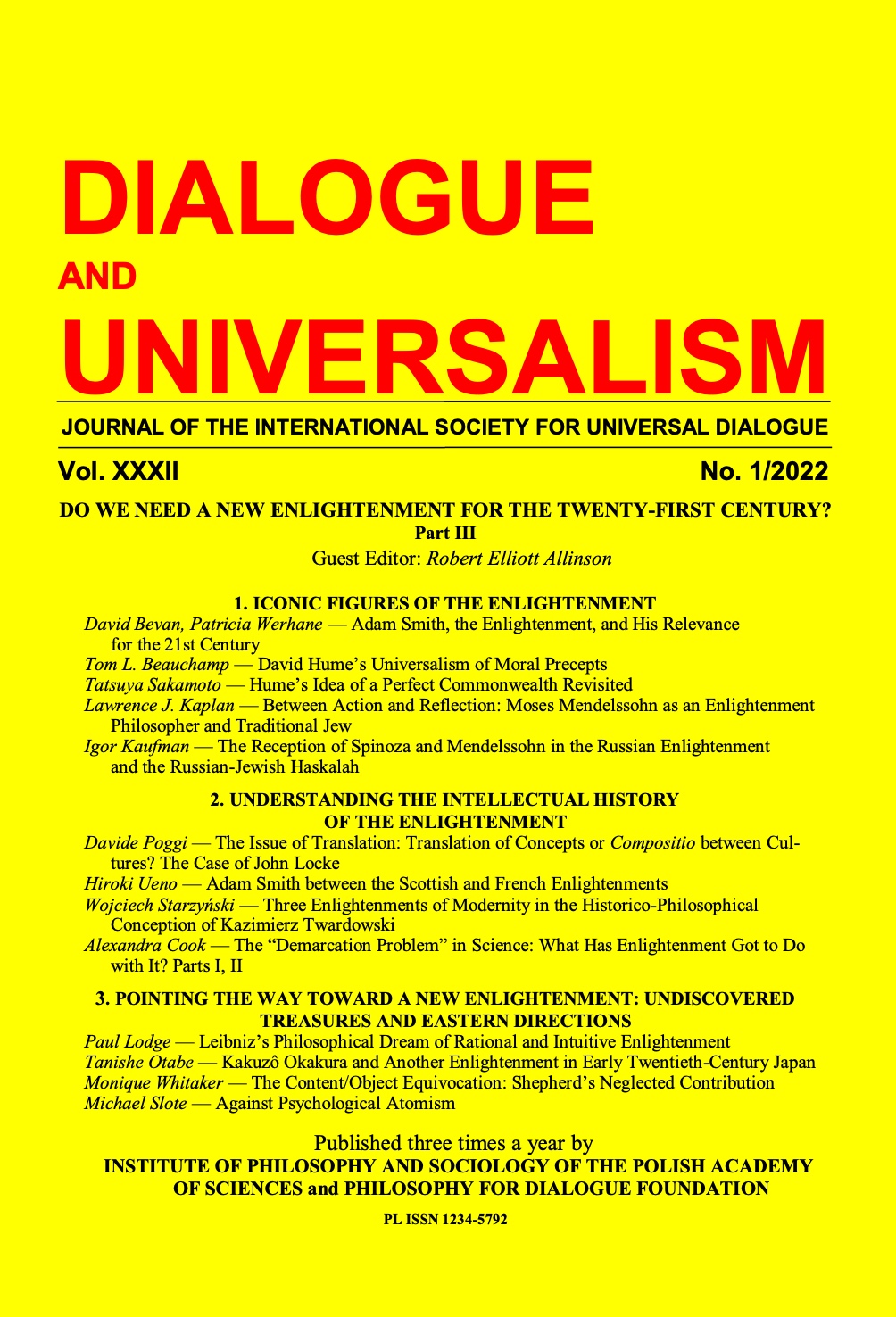AGAINST PSYCHOLOGICAL ATOMISM
AGAINST PSYCHOLOGICAL ATOMISM
Author(s): Michael SloteSubject(s): Philosophy
Published by: Instytut Filozofii i Socjologii Polskiej Akademii Nauk i Fundacja Filozofia na Rzecz Dialogu
Keywords: psychological atomism; non-cognitivism; Elizabeth Anscombe; David Hume; Immanuel Kant
Summary/Abstract: Total permissiveness can be captured by the phrase “anything goes.” Psychological atomism can be informally characterized by the idea that in the mind anything goes with anything. There is a strong tendency toward such thinking in Western philosophical thought—both in classical antiquity and during and since the Enlightenment. Perhaps the two most important philosophers of the Enlightenment, Hume and Kant, accepted more or less limited forms of atomism, and I shall explain in what follows in the main text and footnotes, why and how I think their atomism goes astray. Since much of Western philosophy since the Enlightenment to some extent bears its imprint, we shall also be seeing some recent examples of ill-conceived atomism. However, and despite the main themes of the present volume, I shall go well beyond the task of dealing with themes in Enlightenment thinking. In fact, I shall be relying on some unfamiliar aspects of Chinese thought to correct quite generally what I take to be erroneous atomistic thinking.
Journal: Dialogue and Universalism
- Issue Year: 2022
- Issue No: 1
- Page Range: 249-263
- Page Count: 15
- Language: English

